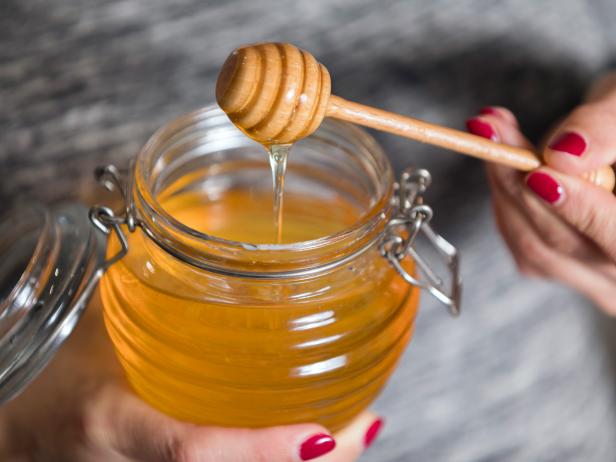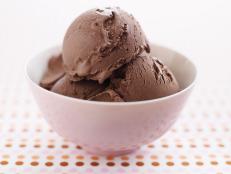Why Is Manuka Honey So Popular?
Here's why there's so much buzz around this particular kind of honey.

Wojtek Skora/Getty Images
You’ve probably heard all the buzz about Manuka. This variety of honey is derived from bees that pollinate the Manuka bush native to New Zealand. It’s believed that Manuka honey helps treat those nasty wound infections because of its unique qualities to fight infection, prevent and treat cancer, reduce high cholesterol, reduce inflammation, treat diabetes, help with tummy trouble and treat infections in the eyes, ears and nose. It’s amazing to think that those bees taking pollen from the Manuka bush have these healing properties. But can this sticky jar of goodness really be that healthy? Well, sometimes foods are hyped to be healthier than they truly are.
Why All the Hype?
All honey produces hydrogen peroxide, which gives honey that rep of fighting infections. Manuka honey is even more special as it has methylglyoxal (let’s call it MG), which also gives it antibacterial powers. MG is produced from another compound found in the nectar of the Manuka flower. When the MG is in higher amounts, the antibacterial fighting properties are even stronger.
Manuka honey has such impressive antibacterial powers that honey producers developed a rating system based on Manuka honey called Unique Manuka Factor (UMF). In order to have those strong bacteria fighting qualities, Manuka honey needs a minimum rating of 10 UM.
What the Science Says
Honey has been used for thousands of years for wound care. Current research suggests that Manuka honey may be beneficial for folks with open wounds, when applied directly. Research also suggests that Manuka honey is a quick topical treatment for infections on your skin. In reality, however, there is limited research saying you should slather your cuts in honey, or use it for any other condition it’s supposed to help cure.
Bottom Line
If you have a bad wound or infection, your best bet is to visit your doctor or healthcare professional before slathering Manuka honey on it. The same holds true if you plan on licking your way to health with the sticky stuff when you have tummy trouble, diabetes, cancer and other health conditions. Feel free, however, to add Manuka honey to your hot toddie, oatmeal, smoothie, baked goodies and other foods. It’ll add sweetness and some potent bacteria fighters.
Toby Amidor, MS, RD, CDN**, is a registered dietitian and consultant who specializes in food safety and culinary nutrition. She is the author of The Greek Yogurt Kitchen: More Than 130 Delicious, Healthy Recipes for Every Meal of the Day.
*This article was written and/or reviewed by an independent registered dietitian nutritionist.
Related Links:































